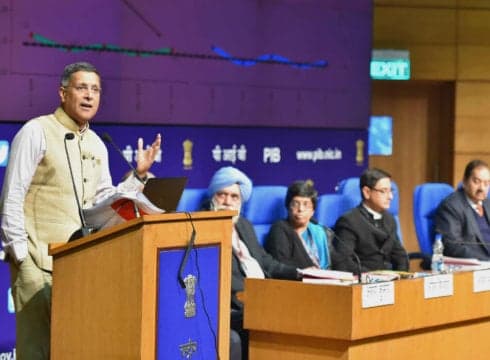Major Contributors To The Country’s NPAs Are LSEs, Not MSMEs, Reports The Survey
Inc42 Daily Brief
Stay Ahead With Daily News & Analysis on India’s Tech & Startup Economy
India’s ecommerce market has reached $33 Bn registering a 19.1% growth in 2016-2017, says the recently-published Indian government’s Economic Survey 2018.
The ecommerce market value is still 30% less than what Chinese ecommerce companies sold on Singles day last year.
Compared to the last year, the country’s Information Technology (IT) / IT-enabled services (ITeS) sector has grown to $140 Bn, registering a growth of 8% last year. However, IT-related export percentage, compared to 2006, has come down by 1%, from 68% to 67%.
The overall IT-BPM export has grown by 7.6% to $116 Bn from the earlier $108 Bn, said the report quoting NASSCOM.
The report stated, “However as per the RBI data, software exports registered a growth of (-) 0.7% in 2016-17. In 2017-18 H1, it grew by 2.3%. USA, the UK and EU account for around 90% of the total IT-ITeS exports. While, there are new challenges surfacing in these traditional geographies, demand from APAC, Latin America and the Middle East Asia is growing and new opportunities are emerging for expanding in continental Europe, Japan, China and Africa.”
Prepared by the Chief Economic Advisor to the PM, along with the other 55 members in his team, the Economic Survey 2018 has interestingly touched upon a number of allied points such as climate change and gender equality that do affect the country’s economy in long-run.
Ease Of Doing Business
According to the report, the government’s efforts to make business and commerce easy have been widely acknowledged.
On Ease of Doing Business, the report said, “The next frontier on the ease of doing business is addressing pendency, delays and backlogs in the appellate and judicial arenas. These are hampering dispute resolution and contract enforcement, discouraging investment, stalling projects, hampering tax collections but also stressing tax-payers, and escalating legal costs.”
“Co-ordinated action between the government and the judiciary – a kind of horizontal Cooperative Separation of Powers to complement vertical Cooperative Federalism between the central and state governments – would address the “law’s delay” and boost economic activity.”
Presenting the figures regarding pendency and delays, the survey has also highlighted the fact that it’s the large scale companies whose loans turn into Non Performing Assets (NPA), while SMEs account for significantly less NPAs.
{{#name}}{{name}}{{/name}}{{^name}}-{{/name}}
{{#description}}{{description}}...{{/description}}{{^description}}-{{/description}}
Note: We at Inc42 take our ethics very seriously. More information about it can be found here.


